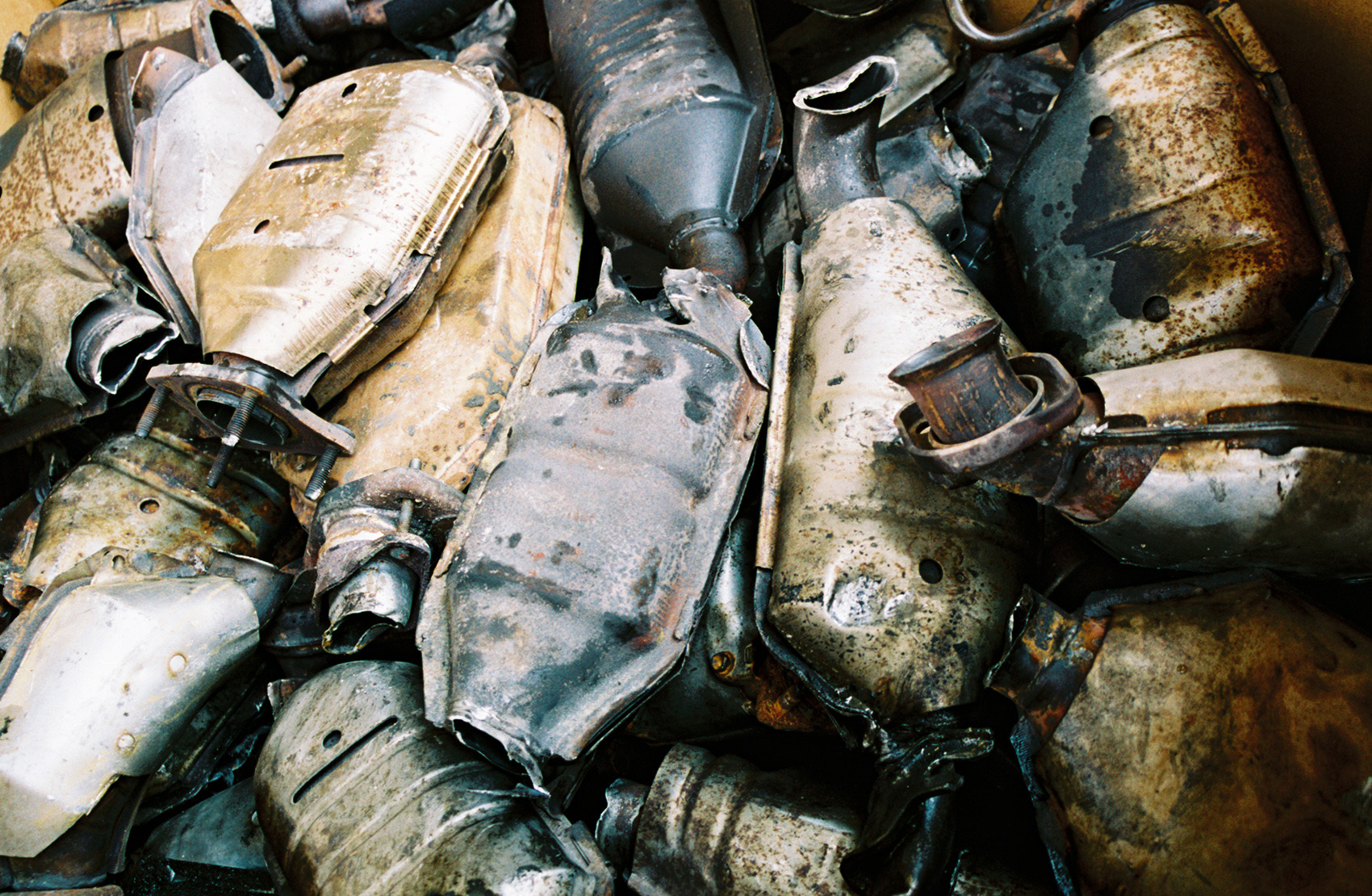As commodity prices have recently skyrocketed, so has the theft of catalytic converters, which contain valuable nonferrous metals including platinum, palladium, and rhodium. Though it’s not a new crime, the internet has made it easy for thieves to quickly and easily offload the items.
ISRI and its members have been working to protect the recycling industry from illegitimate core buyers and to show the industry is willing to work with law enforcement and follow scrap metals theft laws. In response to New Jersey bill S3608, sponsored by state Sen. Sandra Cunningham, ISRI’s New Jersey Chapter issued a statement proposing several options to help curb the illicit trade in stolen catalytic converters.
As proposed, the bill creates a new category, “core recycler,” and defines it to include recycled metal businesses, auto repair shops, pawn brokers, and anyone who purchases a catalytic converter detached from a motor vehicle. “It imposed only two requirements on core recyclers: that they have the title and registration number of the vehicle where the catalytic converter originated. Though well-intentioned, its implications would be negative,” says Danielle Waterfield, ISRI’s chief policy officer, who submitted the statement on behalf of the New Jersey members. “The bill would allow core recyclers, as defined, to purchase catalytic converters, and would only require them to provide information that’s in the bill,” she explains. “For example, they wouldn’t be required to keep any records for law enforcement, so there’d be no paper trail at all.”
Michael Miller, New Jersey Chapter president, agrees the bill is a good start, but could more precisely target the problem. “We already have scrap metal theft laws, and legitimate scrap metal businesses do their best to comply with them,” he says. In his experience, catalytic converter thieves don’t like selling to yards that comply with state laws, “because we have checks and balances; we’re already taking photos, drivers’ licenses, and documentation of the materials. It’s already a deterrent against theft.” He adds sometimes before a thief tries to sell a catalytic converter, a recycler can tell something’s wrong over the phone. A thief may bring something in to find out what documentation recyclers take. “Then you don’t see them again; they disappear,” Miller explains.
Rather than prevent theft, the proposed bill would inadvertently allow thieves to continue illegally buying and selling catalytic converters with no paper trail for law enforcement to follow. Miller says the proposal could have more impact by shifting focus to individuals buying several catalytic converters in a single transaction, or individuals making multiple single-purchase transactions within a short period. He says those who sell one catalytic converter typically are scrapping their own cars. “They’re thrilled to get $100 for it, you can tell,” he says.
The New Jersey Chapter offered Cunningham language designed to strengthen the measure. “Essentially we said, ‘[ISRI is] your partner in this; we’ll help you clarify and draft the bill so it’s stronger,’” Waterfield says. The chapter recommended:
- Ensuring only those regulated under the state metals theft statutes are permitted to purchase catalytic converters in order to prevent core recyclers from evading existing theft laws;
- Specifically adding catalytic converters to the definition of “scrap metal” to make it perfectly clear that purchase of these devices is subject to New Jersey scrap metal theft laws;
- Strengthening proposed documentation requirements by requiring scrap metal businesses to add a copy of the Vehicle Identification Number of the vehicle from which the catalytic converter was removed to the scrap metal transaction sales record, as applicable; and
- Subjecting illegal purchases of catalytic converters to criminal penalties under the state’s scrap metal theft laws and general theft statutes.
Miller believes subjecting thieves to stiffer fines and spreading the word will help make a difference. “You have to get rid of the problem by cracking down on these thieves. ISRI members, meanwhile, are committed to doing the right things,” he says.
In New Jersey, catalytic converter thieves face a disorderly persons offense (lesser than a felony) for their first or second violation, and fourth-degree felony (the grade for crimes like forgery and unlawful prescription drug possession) charges for subsequent offenses. Disorderly persons offenses in New Jersey carry up to six months’ jail time and a $1,000 fine, while fourth-grade felony convictions can lead to a prison sentence of 18 months and fines up to $10,000. Replacing a catalytic converter in New Jersey and elsewhere can cost up to $3,000. “Disorderly persons isn’t a deterrent,” Miller states. “I hate to limit people to what they can do to make money, but at the same time they can’t have different rules than we do. You have to give them the same rules that we follow.”
ISRI and its members have been working with law enforcement on this issue. ISRI conducts virtual and in-person metals theft workshops for police across the country at no cost. “The workshops cover state metals theft laws, recycling operations, and ISRI resources like ScrapTheftAlert.com,” says Brady Mills, ISRI’s director of law enforcement outreach. Recyclers can let law enforcement agencies know about any precautions recyclers take above and beyond local laws when purchasing recycled metal and catalytic converters. “Let law enforcement know [ISRI] members are a great source of information when working on legislative remedies to the issue of catalytic converter theft,” Mills adds.
Miller has welcomed police to his business and helped out wherever needed. “We get asked if we’ve seen materials come in or [seen] the thieves themselves. We’re obligated to give [law enforcement] the information whenever they ask for it, and we do,” he explains. All states have provisions in their metals theft laws regarding inspections of records and/or materials by law enforcement. Specific requirements and restrictions can be found here.
Since there’s no set timeframe on the New Jersey bill, Waterfield believes ISRI may have the opportunity to follow up with the sponsor, introduce her to the recycling industry, and work with her staff to incorporate the substitute language into the final bill. “We want to make the bill stronger and protect our members from the illegitimate core buyers out there,” Waterfield says. “There’s still time to work, and we hope we’ll be able to strengthen the bill.”
Additional Resources













